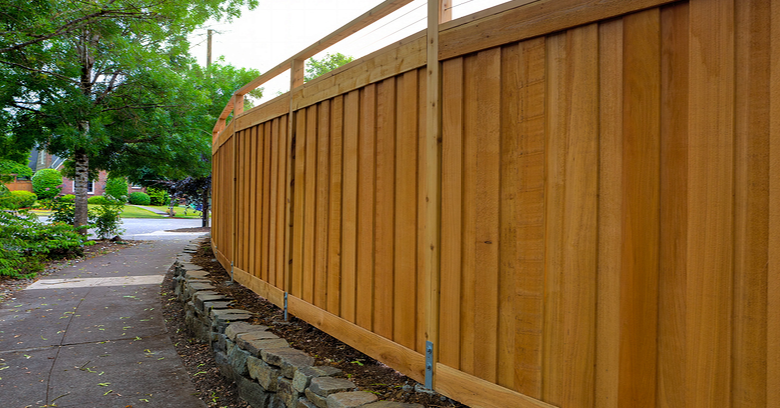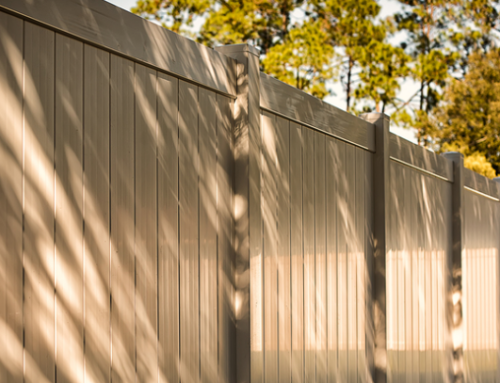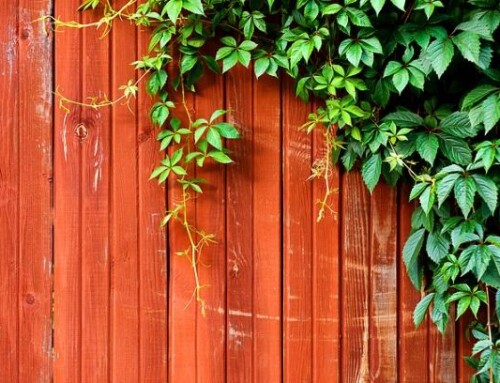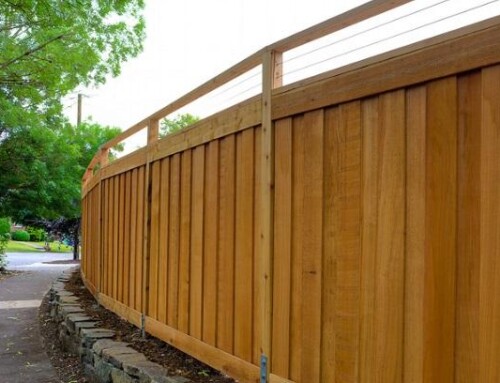Privacy fences can turn a plain backyard into your secret getaway known only to you.
Of all the types of privacy fencing available, pressure treated pine and cedar are highly popular options available throughout the country.
If wondering which of the two is better for your privacy fencing installation, check out the advantages and disadvantages of each so you can make the right decision for your needs.
Pine Privacy Fences
Pine is a plentiful resource for making fences as it’s easy to grow, flourishes quickly, plus is straight and strong, requiring less milling before it can be made into fencing.
Used for privacy fencing, pine offers numerous pros and cons:
The Pros of Pine
- Inexpensive, plentiful, and requires minimal processing to make into actual fencing components.
- Strong when in good condition and well maintained; pressure treated pine posts are especially durable and frequently used in conjunction with other rail and panel types.
The Cons of Pine
- Will warp, crack, and split as it ages and dries, potentially resulting in damage to anyprivacy fencing installation.
- As pine is susceptible to rot and insect damage, chemical pressure treating is required to make it resilient against such destructive factors.
- Even when pressure treated, pine will still discolor over time and dry out due to exposure. To keep it looking and performing well, a pine privacy fence requires considerable maintenance as it should be cleaned and stained or sealed every couple of years.
Cedar Privacy Fencing
Another popular option for privacy fencing is cedar, a straight and sustainable wood that is favored for its strength and other important benefits that outweigh those gained using pine:
Cedar Pros
- Naturally durable and resistant to insects, rot, warping, splitting, and other factors that slowly destroy pine and other types of wood, cedar requires no chemical treatment to maintain its strength and condition.
- Has a rich reddish-brown appearance that makes it attractive for privacy fencing installations and after time, will fade from reddish brown to a unique silvery gray.
- Requires almost no maintenance yet can be cleaned and sealed or stained to retain its reddish-brown coloration.
- Has a fresh, woody aroma.
Cedar Cons
- Slower growing and not as available as pine, which means it’s more expensive.
- Prolonged exposure in the soil can weaken posts, so pressure-treated pine posts should be used for a privacy fence.
- Will lose its warm appearance and turn silvery gray over time as it dries; can be cleaned and sealed to restore its original appealing aspect.
Pine and Cedar Privacy Fencing Options
Both suitable options for any privacy fencing installation, the biggest differences between pine and cedar wood are cost, maintenance requirements, and its reaction to drying out.
Although it may be less expensive to initially install a pine privacy fence, increased maintenance may make the slightly higher cost of cedar well worth the expense.
Yet for a homeowner who doesn’t mind a little extra work, lower-cost pine may be perfect for privacy fencing!




